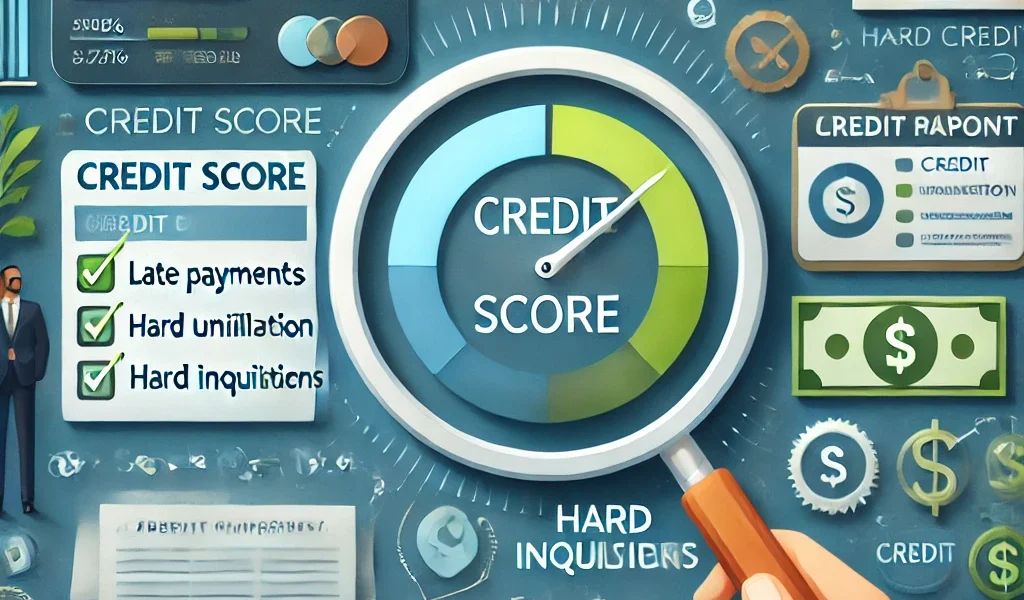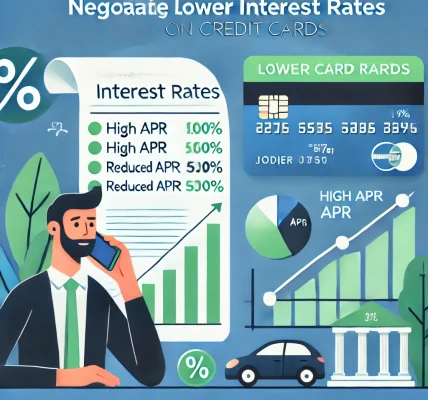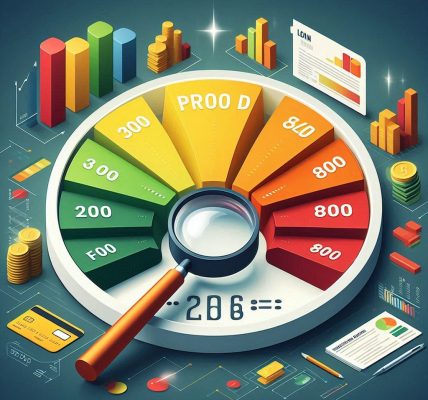Your credit score plays a crucial role in your financial life, affecting everything from loan approvals to interest rates and even job applications. While most people know that late payments and high credit utilization negatively impact their scores, several lesser-known factors can also play a significant role.
In this DIY guide, we will uncover these hidden factors affecting your credit score and provide actionable steps to fix them and boost your financial health.
Understanding Your Credit Score
Before diving into the hidden factors, it’s essential to understand how credit scores are calculated. The most commonly used scoring model, FICO, considers the following components:
- Payment History (35%) – Whether you pay your bills on time.
- Credit Utilization (30%) – The percentage of your available credit in use.
- Length of Credit History (15%) – How long you’ve had credit accounts.
- Credit Mix (10%) – The variety of credit accounts (loans, credit cards, etc.).
- New Credit Inquiries (10%) – How frequently you apply for new credit.
Now, let’s uncover the hidden factors that may be silently impacting your credit score.
1. Unused Credit Cards and Dormant Accounts
Why It Matters
Many people believe closing old credit cards helps their score, but in reality, it can hurt your credit history and increase your credit utilization ratio.
How to Fix It
✅ Keep old credit accounts open, even if you don’t use them frequently. ✅ Use these cards occasionally for small purchases and pay them off to keep them active. ✅ If you must close an account, choose one with a low credit limit and a short credit history.
2. Incorrect or Outdated Information on Your Credit Report
Why It Matters
Errors on your credit report, such as incorrect payment statuses or accounts you don’t recognize, can lower your score.
How to Fix It
✅ Obtain free credit reports from AnnualCreditReport.com. ✅ Check for inaccuracies in account balances, payment history, and credit limits. ✅ Dispute errors with the credit bureau immediately.
3. Having Only One Type of Credit
Why It Matters
Credit bureaus reward borrowers with a healthy mix of credit types, such as credit cards, auto loans, and mortgages.
How to Fix It
✅ If you only have credit cards, consider taking out a small personal loan or credit-builder loan. ✅ Avoid opening multiple new accounts at once, as this can temporarily lower your score.
4. Hard Inquiries from Multiple Loan Applications
Why It Matters
Each time you apply for a loan or credit card, a hard inquiry is made on your report, potentially lowering your score.
How to Fix It
✅ Limit unnecessary credit applications. ✅ If shopping for a loan (e.g., mortgage or auto loan), do it within a short time frame (usually 14-45 days), so it’s counted as a single inquiry. ✅ Opt for pre-approved credit offers to reduce hard inquiries.
5. Late Payments on Non-Credit Bills (Utilities, Rent, etc.)
Why It Matters
Even though rent, utilities, and phone bills don’t typically appear on your credit report, if they go to collections, they can damage your score.
How to Fix It
✅ Set up automatic payments or reminders for rent and utility bills. ✅ Use services like Experian Boost, which adds on-time utility and rent payments to your credit history.
6. High Balances on Individual Credit Cards
Why It Matters
Even if your overall credit utilization is low, one maxed-out card can negatively impact your score.
How to Fix It
✅ Pay down high balances on individual cards first. ✅ Spread balances across multiple cards to keep utilization low. ✅ Request a credit limit increase, but avoid overspending.
7. Not Checking Your Credit Score Regularly
Why It Matters
If you don’t monitor your credit score, you won’t notice errors, fraud, or opportunities for improvement.
How to Fix It
✅ Sign up for free credit monitoring services (e.g., Credit Karma, Experian, or your bank’s services). ✅ Check your score monthly and take action when needed. ✅ Set up fraud alerts for added security.
8. Co-Signing Loans for Others
Why It Matters
If you co-sign a loan, you are equally responsible for the debt. Any late or missed payments impact your credit score as well.
How to Fix It
✅ Only co-sign for someone you completely trust. ✅ Monitor payments closely and set up alerts. ✅ Request to be removed as a co-signer once the primary borrower builds enough credit.
9. Short Credit History Due to New Accounts
Why It Matters
Opening multiple new credit accounts in a short period lowers the average age of your accounts, negatively affecting your score.
How to Fix It
✅ Avoid unnecessary new credit accounts. ✅ Keep old accounts open to maintain a long credit history.
10. Ignoring Small Debts and Collections
Why It Matters
A small medical bill or unpaid library fine that goes to collections can significantly drop your score.
How to Fix It
✅ Check for small outstanding debts regularly. ✅ Settle collections as soon as possible and request a “pay-for-delete” agreement. ✅ Negotiate payment plans if needed.
Final Thoughts: Take Control of Your Credit Score
Improving your credit score isn’t just about paying bills on time—it’s also about understanding and fixing hidden factors that may be working against you. Here’s how to take action today:
✅ Review your credit report and dispute errors. ✅ Maintain low credit utilization and keep old accounts open. ✅ Diversify your credit mix and avoid unnecessary hard inquiries. ✅ Monitor your credit score regularly and take proactive steps.




